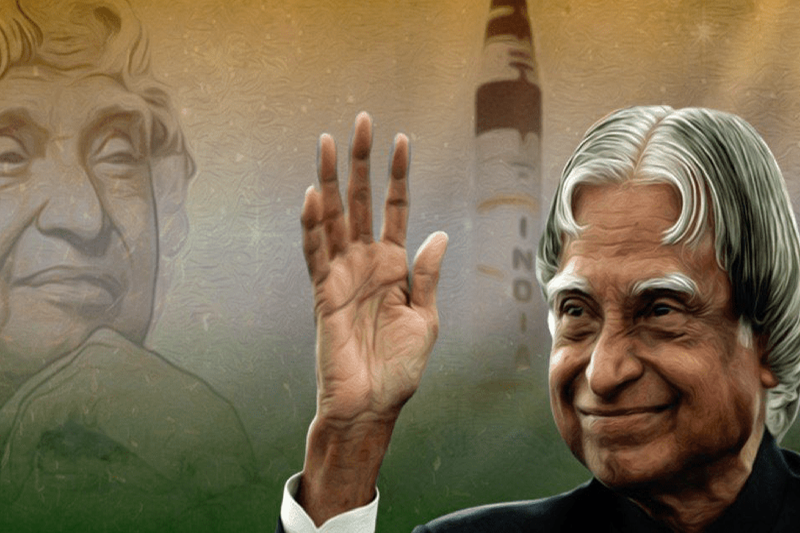
Remembering Dr APJ Abdul Kalam on His Birth Anniversary: A Visionary Who Empowered India's Youth
Every year, October 15 is observed in India as the birth anniversary of Dr APJ Abdul Kalam, one of the most admired figures in the country’s history. A distinguished scientist, inspirational teacher, and former President of India, Dr Kalam's legacy continues to influence generations. This day serves as more than just a remembrance of a great life—it is a celebration of learning, innovation, and empowerment, particularly for the youth.
A Life Rooted in Humble Beginnings
Born on October 15, 1931, in Rameswaram, Tamil Nadu, Dr Avul Pakir Jainulabdeen Abdul Kalam came from a modest background. His father was a boat owner and an imam, and his mother managed the home. Despite financial constraints, young Kalam showed early signs of determination, curiosity, and a passion for learning.
After completing his schooling at Schwartz Higher Secondary School in Ramanathapuram, Kalam pursued a degree in Physics from St Joseph’s College, Tiruchirappalli, in 1954. His fascination with aviation led him to the Madras Institute of Technology (MIT), where he studied aeronautical engineering—laying the foundation for his future contributions to India's space and defense programs.
Scientific Achievements That Transformed a Nation
Dr Kalam began his professional journey at the Defence Research and Development Organisation (DRDO) in 1960, where he worked on hovercraft development. However, it was at the Indian Space Research Organisation (ISRO) that he truly made his mark. As the project director of India’s first satellite launch vehicle (SLV-III), he led the successful launch of the Rohini satellite into orbit in 1980—an event that marked India's entry into space technology.
Later, Kalam returned to DRDO to lead India’s Integrated Guided Missile Development Programme (IGMDP), which earned him the title of ‘Missile Man of India’. Under his leadership, India developed critical missile systems such as Agni and Prithvi, boosting the nation's self-reliance in defense technology.
A People's President with a Vision for the Future
In 2002, Dr Kalam was elected as the 11th President of India, serving until 2007. His tenure stood out for its accessibility, humility, and emphasis on engaging with common citizens, especially the youth. Unlike many before him, Kalam made the largely ceremonial role of President an active and inspiring one—turning Rashtrapati Bhavan into a hub for ideas and dialogue.
He used his position to motivate students, speak about science and innovation, and share his vision of a developed India, as outlined in his influential book India 2020. Even after his presidency, Kalam continued to visit educational institutions, often beginning his addresses with stories from his life, making complex ideas relatable and memorable for students.
The Legacy of a Teacher and Mentor
Dr Kalam once famously said,
“If the people remember me as a good teacher, that will be the biggest honour for me.”
He lived by those words. Long after his presidential term, he dedicated himself to interacting with and mentoring students across the country. One of his personal missions was to meet and inspire over one lakh students, underscoring his belief that India’s development hinged on the strength, creativity, and values of its youth.
Kalam's final moments were in alignment with this lifelong mission—he passed away on July 27, 2015, while delivering a lecture at IIM Shillong, leaving behind a poignant reminder of his dedication to teaching.
World Students' Day: Clearing the Misconception
Many people in India believe that the United Nations has designated October 15 as World Students’ Day in honor of Dr Kalam. However, that is a common misconception. In reality, the UN observes October 15 as the International Day of Rural Women. Despite the lack of official international recognition, India continues to celebrate this day as a National Students' Day, a reflection of Kalam’s profound connection with students.
Why October 15 Matters More Than Ever
The celebration of Dr APJ Abdul Kalam’s birth anniversary is not just about remembering the man; it is a call to action. It urges educators, institutions, and policymakers to make learning more inclusive, accessible, and impactful.
Dr Kalam believed in a holistic education system—one that combined knowledge with ethics, curiosity with creativity, and ambition with compassion. As India continues to navigate the complexities of the 21st century, this vision remains incredibly relevant.
His teachings and writings continue to resonate with millions. Whether it’s through initiatives that promote STEM education, innovation hubs in schools and colleges, or mentorship programs for underprivileged students, Kalam’s philosophy offers a blueprint for national progress.
A Timeless Message for the Youth
One of Dr Kalam’s most quoted lines remains:
“Dream, dream, dream. Dreams transform into thoughts, and thoughts result in action.”
These words are not just motivational—they are deeply practical advice for any young person aspiring to create change. His legacy reminds us that dreams, when combined with hard work and integrity, can transform a nation.
Conclusion
On October 15, as the nation pays tribute to Dr APJ Abdul Kalam, we are reminded of the incredible journey of a man who rose from humble beginnings to become a global icon in science, education, and leadership. His life’s work continues to inspire educators, students, and innovators to build a better, smarter, and more compassionate India.
More than just a remembrance, this day calls on us all to reflect, reimagine, and reinvest in the power of education and the promise of our youth—just as Dr Kalam would have wanted.



